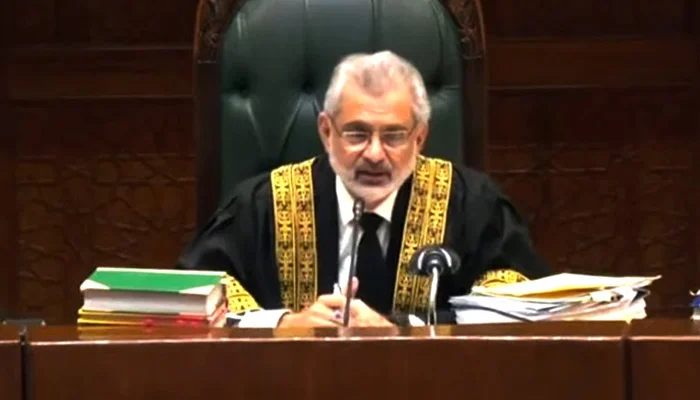In his capacity as the Judicial Commission of Pakistan chairman, Chief Justice of Pakistan Qazi Faez Isa has asked all members of the commission to suggest whether candidates for the appointment of superior courts’ judges should be interviewed.
“Having assumed the position of Chief Justice thus the chairmanship of the Judicial Commission of Pakistan, I look forward to working with you to best undertake our collective responsibility,” the CJP said in the letter sent to all 28 JCP members.
“The JCP has to consider appointments of High Court Judges from (a) District and Sessions Judges and (b) lawyers. The JCP also considers the (c) confirmation of Additional Judges. Please do let me know if you have any suggestions at your earliest convenience regarding the said three categories (a, b and c), and whether potential candidates should be interviewed,” the letter stated.
The letter reflects that the chief justice is only seeking suggestions about the appointment of high courts’ judges. There is nothing specifically mentioned about the criteria regarding the appointment of SC judges in the letter. Currently, two seats of SC judges are vacant.
There have been severe clashes among senior SC judges about the appointment of SC judges for last five years. It is learnt that the commission might consider amending Rule 3 of the JCP Rules, which empowers the chief justices to initiate nominations in the commission.
Supreme Court’s Justice Athar Minallah in his minority opinion declared that chief justices’ power to initiate names for appointment of judges to high courts and the apex court was ultra vires the Constitution.
Rule 3, he added, conferred powers on the chief justices, as the case might be, to initiate nominations in the JCP but the commission did not have prescribed objective criteria in this regard.
“The initiation of nominations relates to identifying eligible persons to be considered by the commission. This is the most crucial stage because it deprives the commission of exercising its inherent duty of identification of the eligible candidates.
“Rule 3 creates a bottleneck by allowing the chief justices to regulate the entire process and that too in the absence of predetermined objective criteria.
“The commission contravenes the terms of its powers and fails in pursuing the objective for which they have been conferred. Rule 3, therefore, is ultra vires Article 175-A of the Constitution,” the judge noted.










